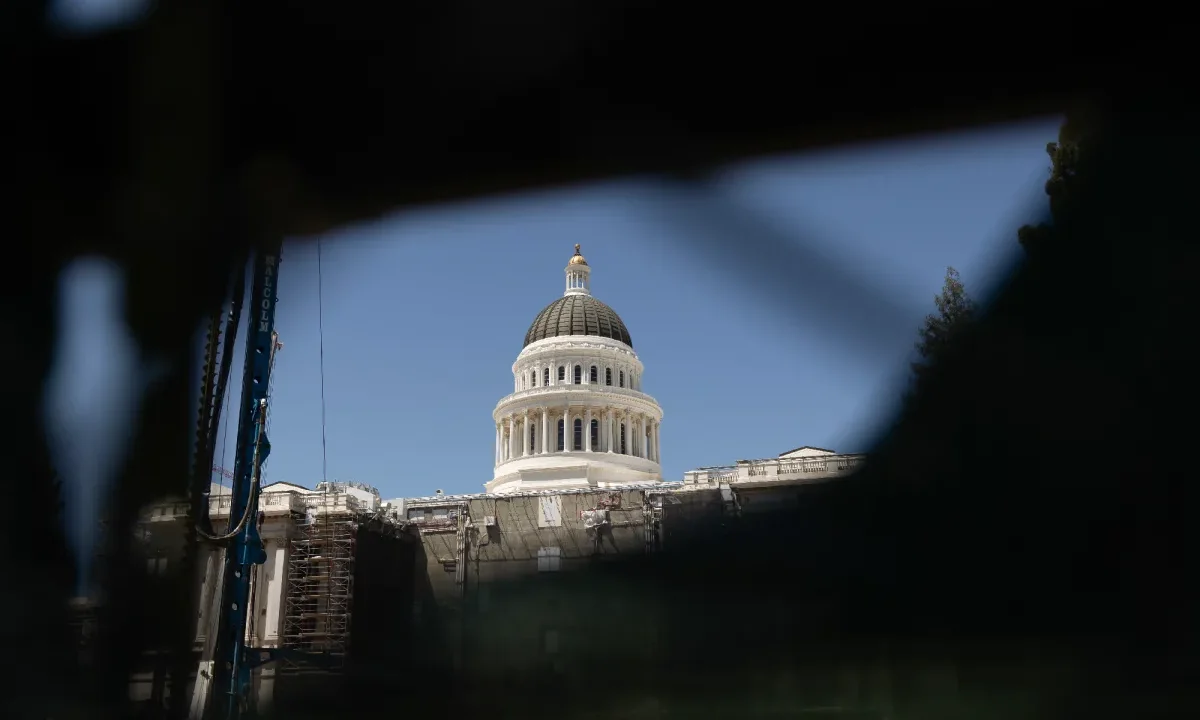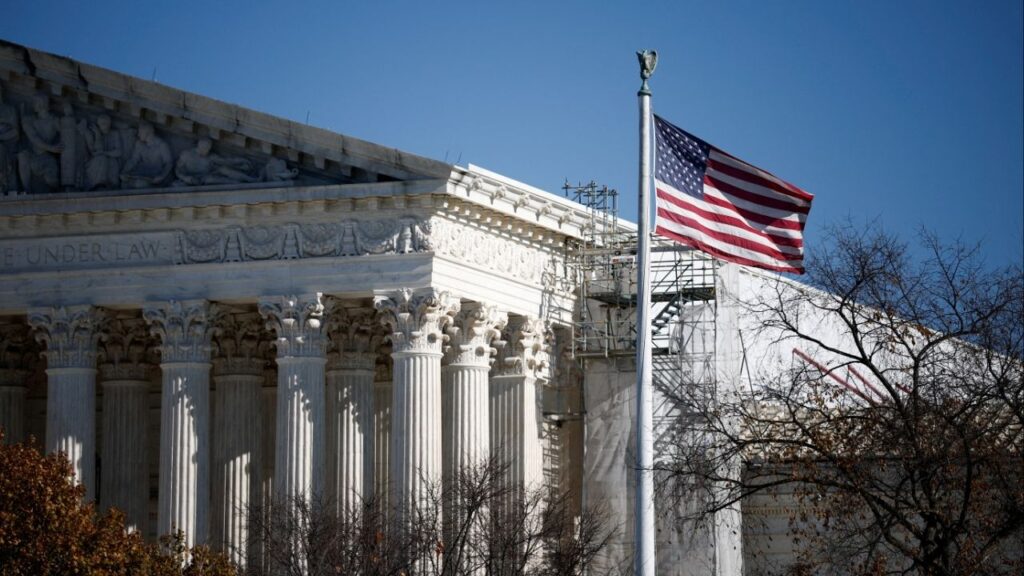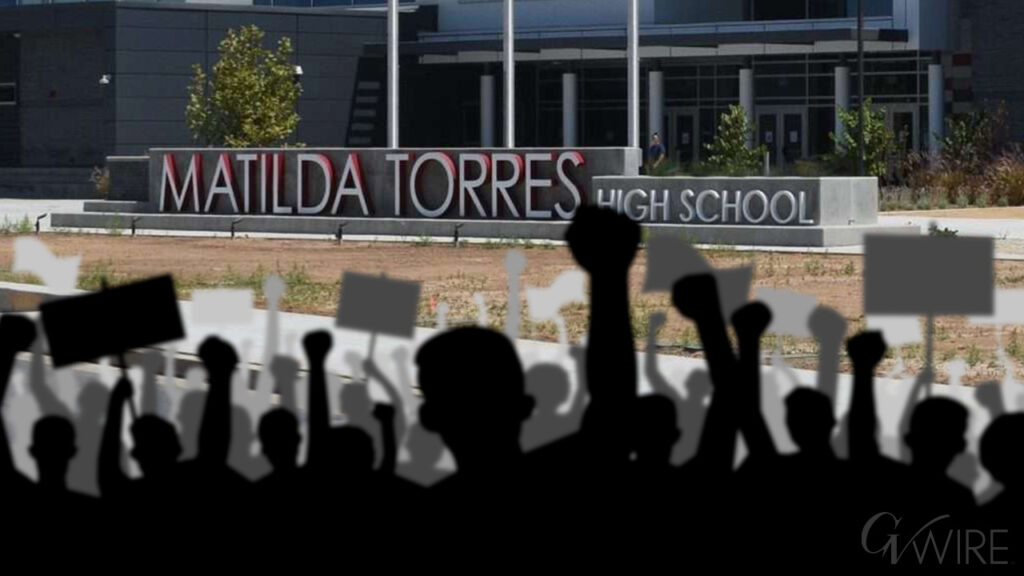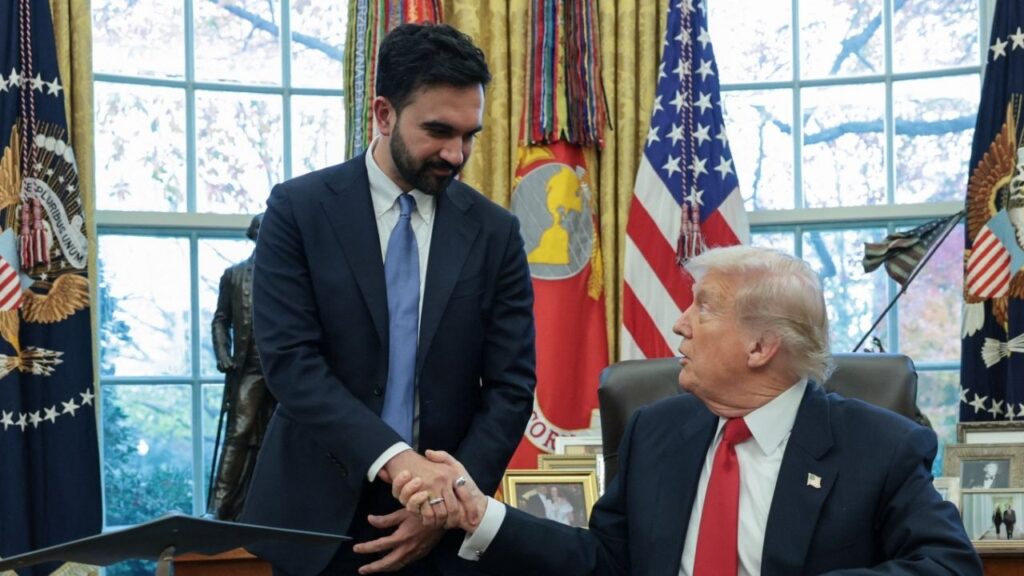
- A perfect storm of economic, fiscal and political trends is battering California’s already deficit-ridden state budget.
- Public employee unions and other interest groups are exploring hefty tax increases.
- Californians already bear one of the nation’s highest tax burdens, so there aren't many options.
Share
|
Getting your Trinity Audio player ready...
|
This commentary was originally published by CalMatters. Sign up for their newsletters.
A perfect storm of economic, fiscal and political trends is battering California’s already deficit-ridden state budget, leading public employee unions and other interest groups dependent on money from Sacramento to explore hefty tax increases.
The budget has what fiscal authorities call a “structural deficit,” meaning that its revenue system, dominated by personal income taxes, cannot generate enough income to fully finance all services and programs in current law.
Estimates of the chronic shortfall range from $10 billion a year to as much as $30 billion. Last fall, the Legislative Analyst’s Office calculated that state spending was increasing by about 6% a year while revenue was rising by only 4%.
The current budget, enacted in June, had a $20 billion deficit that was closed by tapping into the state’s emergency reserves, borrowing from special funds, postponing some payments and adopting some bookkeeping gimmicks. For instance, the budget eliminates payments to reduce the state’s ever-growing unfunded obligations for retiree health care which reached $91.5 billion, up $6.3 billion from a year earlier, Controller Malia Cohen recently revealed.
Tax Hike Likely Would Need Voter Approval
The permanence of the deficit is one factor that’s fueling preliminary cogitating over a tax increase of some kind, which probably would have to be ratified by voters.
Another is the reduction of federal aid to states by President Donald Trump and Congress. Federal funds are more than a quarter of California’s $321 billion state budget and the cuts mostly hit health and welfare programs, such as Medi-Cal. Many are looking to Sacramento for money to offset federal reductions.
Finally, a surtax on incomes of California’s wealthiest families, approved by voters in 2012 to deal with an earlier budget deficit, was supposed to last only a few years, but a 2016 ballot measure extended it to 2030. Its backers — public employee unions particularly — are planning to seek either another extension or permanent status.
The Franchise Tax Board says revenue from the surtax spiked to more than $16 billion in 2021 — thanks to the odd economics of the COVID-19 pandemic — but returned to a more normal $9-10 billion a year since.
With State Taxes Already High, Not a Lot of Options
Californians already bear one of the nation’s highest tax burdens. Wallet Hub has calculated that California’s major state and local taxes are the fourth-highest of any state with an 11% total tax burden.
So what kind of tax increase might be proposed? There aren’t a lot of options.
Another income tax hike would be unlikely since maintaining the surtax on high-income taxpayers is already virtually certain to be on the ballot, probably in 2028. Increasing the sales tax, already hovering around 10%, would hit low-income families the hardest.
That leaves corporate income taxes as the most likely target — a source that the California Budget & Policy Center, a left-leaning research nonprofit, has been touting for years. Citing federal aid reductions and cuts in federal taxes on corporations and wealthy taxpayers, the organization is trumpeting the closure of what it views as loopholes in the corporate tax system.
“Given the immense harms that will be done as a result of the recently enacted federal budget bill, state leaders must develop plans to significantly raise state revenues … in order to balance the state budget and protect California residents that are vulnerable to serious harms from the federal cuts to health care, food assistance, and other federal policies,” the organization declares in a compilation of federal reductions.
Clearly something has to give. California cannot continue to run up budget deficits as the reduction of federal aid compounds the state’s already precarious finances.
This article was originally published on CalMatters and was republished under the Creative Commons Attribution-NonCommercial-NoDerivatives license.
Make Your Voice Heard
GV Wire encourages vigorous debate from people and organizations on local, state, and national issues. Submit your op-ed to bmcewen@gvwire.com for consideration.
RELATED TOPICS:
Categories

MAHA Activists Urge Trump to Fire His EPA Administrator

Meta Strikes Multiple AI Deals With News Publishers


















